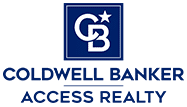9 Tips for Getting a Mortgage When Self Employed

As a self-employed individual, you may get access to the same mortgage borrowing options as any other traditional employee. Lenders will not subject you to any extra requirements; the same credit, debt, down payment, and income standards will be applied. The only thing that may be difficult will be proving your income. As a business owner, contractor, or freelancer proving your cash flow may need more paperwork than a typical salaried employee. If you’re looking at getting a mortgage when self-employed, you can take these steps to make yourself a more appealing loan candidate:
1. Create a larger equity cushion
As a self-employed borrower, you are not required to put down more money, but a larger down payment never hurts. A higher down payment results in a lower loan-to-value ratio, or LTV. This important metric reduces your risk to lenders and may qualify you for lower interest rates. It can also help you avoid fees such as private mortgage insurance.
A larger down payment may make you a more competitive buyer. Lenders will see you as more reliable, less prone to haggling, and less likely to ask sellers to pay closing costs. It can also be a wise strategy for lowering both the monthly cost of carrying the loan and the total cost of interest paid over the life of the loan. This also means you will have more home equity to draw on if you need to access it through a home equity loan or HELOC. This can be useful if you need to remodel or need money for a large expense or an emergency.
2. Have a large cash reserve
Reserves are an atypical aspect of the loan application procedure. The truth is that most residential borrowers do not need reserves to buy a home. But having them can be a brilliant move for a Self-Employed individual.
Lenders desire as little risk as possible when they arrange a mortgage. This is why they have a minimum credit score and down payment restrictions. They also limit the amount of debt you can carry based on your income. For less-than-perfect applicants, reserves can mean the difference between acceptance and rejection. Lenders prefer that borrowers have some form of backup if things go wrong to further reduce their risk. For example, if you lose your job, your income drops, or you have a medical emergency.
3. Prepare a profit and loss statement for the entire year

If you’re trying to secure home financing a profit and loss statement will be requested. This document provides the mortgage lender with insight into the strength and viability of your business.
If you are self-employed or have a controlling interest in a business, mortgage underwriters must use your tax returns to qualify you. As a result, your most recent tax return, say from 2021, was very strong. But in September 2022 your year-to-date income may appear to be slightly lower because all of your billables arrive at the end of the year. This creates a problem for financing because your current income does not support the most recent year based on when the billables were received.
So, when securing financing, the profit and loss statement is used to ensure that your current business is comparable to the most recent year of the income tax return, which the lender uses to qualify you for the mortgage.
If the income is the same, everything is fine. If the income is higher, that is also fine. But it won’t help your loan if the income appears to be lower than the previous income return. This means you’ll have to put the mortgage project on hold until you can show the income within your P and L. This comes up often on self-employment loans and can bite you later if you don’t show the proper amount of income. So, make certain that you show income that is consistent with the most recent years of income tax returns.
4. Improve your credit and debt-to-income ratio
Although self-employed people make up a big part of the working population, their income pattern makes lenders nervous. As a result, you’re starting the purchasing process at a disadvantage. Keeping your finances in good shape is one way to stay ahead of the game. Having said that, a higher credit score can help you get your foot in the door.
A minimum credit score of 580 to 620 is required for several loans. However, as a self-employed applicant, applying for a mortgage with a credit score of at least 740 makes it easier to get approved.
A high credit score indicates that you have a track record of successfully managing debt and credit. As a result, you’re more likely to pay your mortgage on time. It also aids in lowering your debt-to-income ratio. Mortgage lenders typically prefer to keep a borrower’s debt-to-income ratio between 36% and 43%.
Make a plan to pay off your debts if at all possible. A car loan, a student loan, personal loans, and credit cards are examples of debts. Do so before applying for a mortgage. You’ll have a much lower debt-to-income ratio than the other applicants. When you’re self-employed, this can make it easier to qualify for a loan.
5. Get someone to co-sign your mortgage
If you have bad credit but want to get a mortgage, adding a non-occupant co-signer to your loan can help you qualify. A co-signer is someone who agrees to assume financial responsibility for the primary borrower’s loan if they are unable to make payments. This person is usually a family member, friend, spouse, or parent.
When you apply for preapproval, you’ll discover that lenders are unable to provide you with the best interest rates. Because of the nature of your employment, you may have difficulty getting approved. But you know your uncle has a traditional job and a credit score of 800, so you ask him to co-sign your loan application. He agrees and signs his name on the mortgage application.
You’re suddenly a much more appealing candidate for a mortgage. When reviewing your application, the lender takes into account both your income and that of your uncle. When lenders review your application and decide whether or not to approve you for a loan, they consider your uncle’s finances, debt, and credit.
6. Understand what to look for in a mortgage lender
Being picky when looking for a mortgage isn’t always a good idea. Each mortgage application places a hard inquiry on your credit. If you do your research ahead of time, you may be able to avoid unnecessary dents in your credit.
Always compare interest rates from different lenders, which will tell you how much money you’ll owe the lender over time. But do not base your decision solely on low-interest rates. You should consider the loan’s terms, such as whether the rates are fixed or adjustable and how long you have to pay the mortgage.
A fixed-rate loan means that the interest rate will never change for the loan duration, whereas adjustable rates can. The main reason an adjustable rate is better than a fixed-rate mortgage is that it costs less for the first three, five, or seven years. Adjustable rates mortgages are also great because they often allow the borrower to get a larger loan. In a falling-interest-rate environment, they let you enjoy lower interest rates without having to refinance the mortgage.
A mortgage has terms that specify how long you have to pay it back, and these typically range from 5 to 30 years. Will you be able to change the terms if your financial situation changes in the future? For example, will you be able to switch to a 30-year loan if necessary?
Don’t forget to factor in closing costs, such as appraisal fees and property taxes, as these will need to be deducted from your savings. Self-employed people must put down more money than non-self-employed people. Especially, if they don’t have tax returns or meet other requirements that lenders typically ask for.
Most mortgage lenders mostly require similar documentation. These include, but are not limited to, tax returns, bank statements, and a credit report. Inquire about the extras you’ll need to provide due to your self-employment status.
7. Prepare your documents
The type of documentation you’ll be required to provide will vary depending on your lender, situation, and the home loan you’re applying for. The following sections will go over the various types of income and employment documentation that you must provide.

It should be noted that this is in addition to all of the documentation that every mortgage applicant is required to provide. You may have to provide information on any additional sources of income. Prepare bank account statements, or other assets you own, as well as information on any debts you owe. This is especially critical for first-time home buyers who may need assistance through the process.
A. Income Verification
If you’re self-employed, you’ll need to have several types of income documentation on hand when getting a mortgage when self-employed:
- Individual and business tax returns
- All schedules associated with those returns (for example, Schedules C, E, F, K-1, 1120S, and so on) – which schedules you have will depend on how your business is structured.
- 1099s
- Profit and loss statements – these may or may not be audited.
- W-2s are balance sheets (for people with previous experience in the same field)
B. Verification of Employment
If you are self-employed, the following are examples of valid employment verification.
- State or commercial licenses
- Proof of insurance for your company
- Clients’ approval letters for customer service
- Certified personal accountant or tax preparer letters
- Confirmation of membership in a professional organization
- A Doing Business As (DBA) (DBA)
- Letter from an enrolled agent
- Third-party online verification
People who work on contract and are paid by W-2 can also get a verbal confirmation of employment from their employer. Your lender will also confirm that the business is open and operational in addition to this documentation.
8. Keep your business and personal finances separate
If you haven’t already, it’s critical to keep your business and personal expenses separate. In the event of an IRS audit, you must distinguish between business and personal expenses. If this happens, you’ll have a much easier time sorting through finances kept separate from the start.
Use whatever record-keeping or accounting system you want; make sure there’s a clear line between your personal and business funds. Make sure you’re tracking the correct financial data personally and for your business by using free printable tax organizers.
9. Don’t Believe the FHA Loan Myth
Even though self-employed people make up a sizable portion of the working population, their unpredictable income makes some banks uneasy. One of the most common misconceptions about FHA Loans is that they are not available to self-employed people. This is absolutely not the case. While it may take some time for your small business to get off the ground and become lucrative, once established and delivering a consistent stream of money, they are considered the same as any other sort of income.
On the other hand, poor record-keeping makes it difficult for a self-employed person to qualify for FHA loans. The important thing to remember is that even if you know your firm is lucrative, your financial records must clearly demonstrate it. That’s why it’s critical to keep painstakingly detailed records and plan ahead of time—as early as two years before you buy the property. As a result, you’re starting the purchasing process at a disadvantage.
Final Self Employment Mortgage Options Advice
Lenders do not always view self-employed people as ideal borrowers. Employees can be considered creditworthy due to their consistent, easily verifiable incomes, especially if they also have excellent credit scores. Self-employed borrowers will have to provide more documentation to prove their income than traditional employees who can produce a W-2.
But as a self-employed individual buying or refinancing a home may not be as difficult as you think. In today’s market, self-employed borrowers have access to the same mortgage programs and low rates as other borrowers. Your responsibility is to shop around for the best loan program and lender for your specific needs. Use the above-mentioned tips to improve your chances of getting a mortgage when self-employed.
About Anita Clark Realtor
Anita Clark has written 670 posts on this blog.
by Anita Clark Anita is a residential Real Estate Agent in Warner Robins Georgia, with Coldwell Banker Access Realty (478) 953-8595, aiding buyers and sellers with all their real estate questions on her Warner Robins blog.




